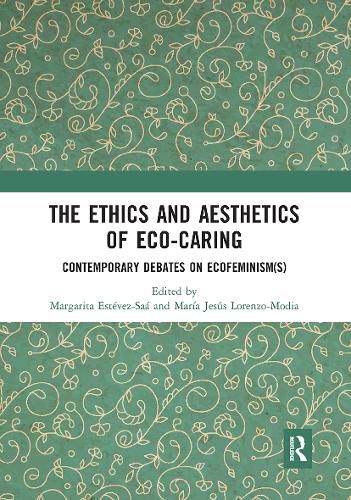Readings Newsletter
Become a Readings Member to make your shopping experience even easier.
Sign in or sign up for free!
You’re not far away from qualifying for FREE standard shipping within Australia
You’ve qualified for FREE standard shipping within Australia
The cart is loading…






This book applies ecofeminist ethics to the realm of aesthetics, offering instances of how alternative configurations of the self, of nature and of non-human animals can go hand in hand with different and viable experiences and visions of environmental welfare.
Preceded by an insightful introduction on the history of ecofeminism and of ecofeminist literary criticism, the chapters included in the volume illustrate the continuing theoretical influence of seminal ecofeminists such as Carolyn Merchant, Rosemary Ruether, Karen Warren, Val Plumwood, as well as an awareness of more recent trends in ecofeminist formulations such as those proposed by Greta Gaard, Serenella Iovino, or Vernon Gras. The book also includes instances of contemporary nature writing such as the text by Irish poet Grace Wells, as well as case studies of the application of ecofeminist tenets in contemporary poetry and fiction written by both men and women. As the contributors demonstrate, contemporary writers are currently deploying a sound interest in the envisioning of alternative visions of healthy and ethical relationships between the human self and the natural environment.
This book will be of interest to those researching the use of language for posthumanist ethics, the deconstruction of gender dichotomies and the ethics of care and environmental justice, as well as to those studying the wider field of ecofeminist literature. This book was originally published as a special issue of Women’s Studies.
$9.00 standard shipping within Australia
FREE standard shipping within Australia for orders over $100.00
Express & International shipping calculated at checkout
This book applies ecofeminist ethics to the realm of aesthetics, offering instances of how alternative configurations of the self, of nature and of non-human animals can go hand in hand with different and viable experiences and visions of environmental welfare.
Preceded by an insightful introduction on the history of ecofeminism and of ecofeminist literary criticism, the chapters included in the volume illustrate the continuing theoretical influence of seminal ecofeminists such as Carolyn Merchant, Rosemary Ruether, Karen Warren, Val Plumwood, as well as an awareness of more recent trends in ecofeminist formulations such as those proposed by Greta Gaard, Serenella Iovino, or Vernon Gras. The book also includes instances of contemporary nature writing such as the text by Irish poet Grace Wells, as well as case studies of the application of ecofeminist tenets in contemporary poetry and fiction written by both men and women. As the contributors demonstrate, contemporary writers are currently deploying a sound interest in the envisioning of alternative visions of healthy and ethical relationships between the human self and the natural environment.
This book will be of interest to those researching the use of language for posthumanist ethics, the deconstruction of gender dichotomies and the ethics of care and environmental justice, as well as to those studying the wider field of ecofeminist literature. This book was originally published as a special issue of Women’s Studies.